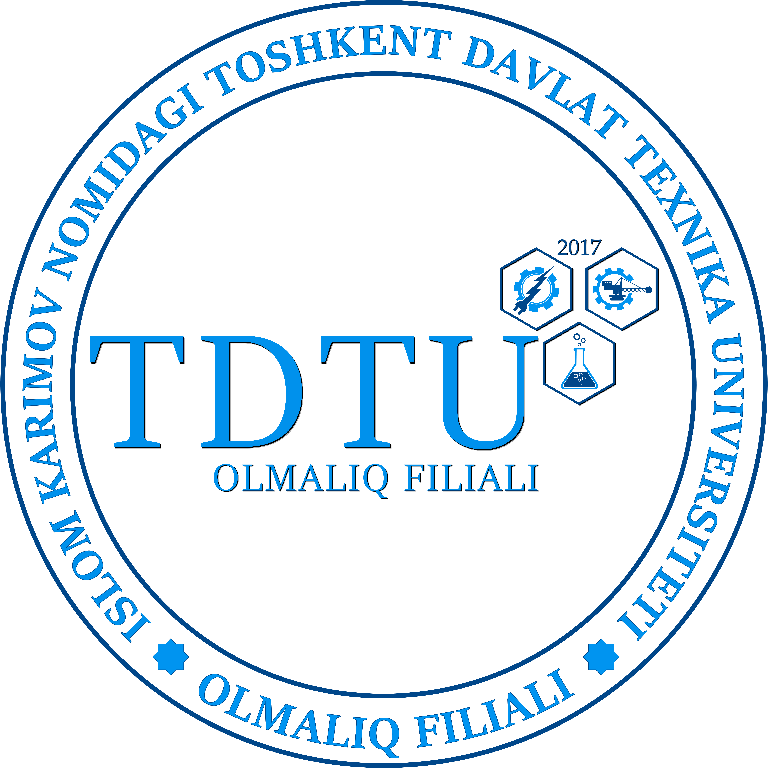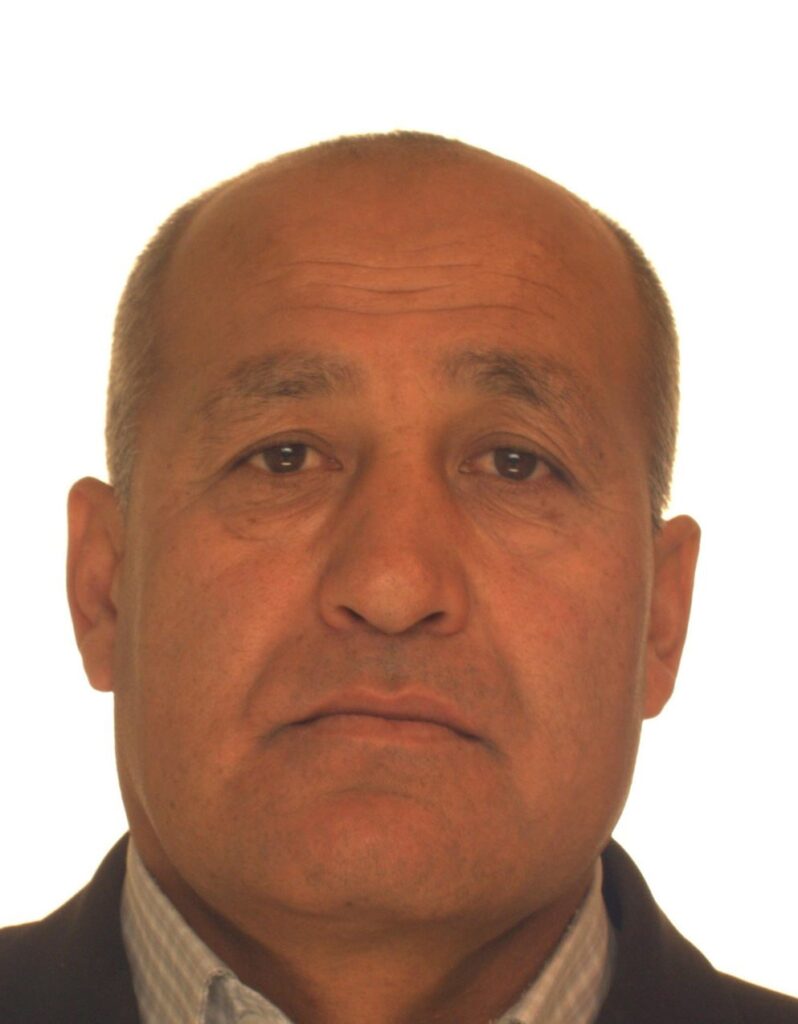Department of anti-corruption compliance control
BAINAZAROV ABDURAUP ABDURASHIDOVICH
Job title: Head of the department of anti-corruption compliance control
Accepting days: Monday-Friday 8:00-17:00
Phone: +99897 769 34 49

STATUTE
Department of anti-corruption compliance control of Almalyk branch of Tashkent state technical university named after Islam Karimov
I. General rules
1. This Regulation defines the status, main tasks, functions, rights, duties, organization of activities, functional duties and responsibilities of the Anti-Corruption Compliance Control Department (hereinafter referred to as the Department).
2. The department is a structural subdivision of Almalyk branch of Tashkent state technical university (hereinafter – the Branch).
3. The activities of the department are aimed at managing “The Compliance Control” system in the branch, as well as anti-corruption activities, within its competence, reports directly to the director of the branch and the Ministry of higher education, science and innovations (hereinafter referred to as the Ministry) is subordinate to the Compliance Control and Anti-Corruption Department.
4. In its activities, the department follows to the Constitution and laws of the Republic of Uzbekistan, resolutions of the Oliy Majlis of the Republic of Uzbekistan, decrees, resolutions and orders of the President of the Republic of Uzbekistan, resolutions and orders of the Cabinet of Ministers, is subject to orders of the Ministry and decisions of the Board, this Charter, internal orders of the branch, as well as other legislative acts.
5. The department carries out its activities in cooperation with other divisions of the branch.
II. Tasks and functions of the department
6. The main tasks of the department are:
to prevent and fight against corruption in the industry;
to ensure the implementation of measures aimed at the implementation of the “Sector without Corruption” project in the higher education system at the sectoral level;
to implement the Compliance Control system in the fight against corruption in the industry;
to identify areas of increased corruption risk in the industry, as well as the reasons and conditions for committing corruption offenses;
to provide information on systemic problems leading to corruption in the industry, and make appropriate proposals for their solution;
to ensure the implementation of programs aimed at eliminating the causes and conditions of corruption offenses in the industry and increasing the effectiveness of anti-corruption measures;
to coordinate public control aimed at combating corruption in the industry, as well as anti-corruption monitoring based on modern methods and information and communication technologies;
to study generally accepted international standards and positive foreign experience in the field of combating corruption and public control, as well as developing proposals for the implementation of best practices;
to organize sociological, scientific and other research and develop proposals on the state, trends and causes of corruption in the industry, as well as the effectiveness of anti-corruption measures;
to coordinate the activities of the academic lyceum at the anti-corruption branch.
7. To fulfill the tasks assigned to it, the department performs the following functions:
monitors compliance with anti-corruption laws and regulations in the branch, as well as decisions and orders of the collegium of the Ministry;
develops measures and action plans to prevent corruption offenses, ensures their complete, high-quality and timely implementation, studies the status of implementation of established measures, prepares information on the results;
implements the project “Sector without corruption” in the branch;
develops and submits to the director for approval drafts of internal documents aimed at the implementation of anti-corruption measures in the branch;
develops proposals to eliminate corruption norms identified in the internal documents of the branch;
assesses corruption risks in the industry and develops action plans to reduce them;
considers complaints and anonymous messages about threats of corruption and violations in the actions of the teaching, management, technical, service and teaching staff of the branch and takes measures in the prescribed manner;
maintains a register of official checks on the facts of corruption in the branch;
participates in the analysis of conflicts of interest in public procurement and checks the reliability of counterparties;
monitors conflicts of interest among employees of the branch and makes appropriate proposals;
organizes regular preventive conversations with the teaching staff, management, technical, service, teaching staff of the branch;
conducts surveys among professors, management, technical, service, teaching staff, students (masters, doctoral students, independent researchers) and the public in order to identify corruption in the activities of the branch;
regularly evaluates the results and impact of anti-corruption advocacy measures based on surveys, social and other research, and uses the results of the assessment in determining further measures;
organizes conferences, meetings, seminars, competitions aimed at combating corruption among teachers and students;
evaluates the effectiveness of measures taken to combat corruption in the industry;
studies the conditions and causes of corruption offenses in the industry, and also develops proposals for their elimination;
provides regular updates of information in the “Anti-corruption” section of the official website of the branch;
quarterly and as required, reports on the anti-corruption work and the situation with corruption in the branch to the director and the Compliance Control and Anti-Corruption Department of the Ministry;
establishes effective cooperation in the field of anti-corruption with the Compliance Control and Anti-Corruption Department of the Ministry and other state bodies and organizations engaged in anti-corruption activities, parents;
supervises the activities of the academic lyceum at the anti-corruption branch;
monitors anti-corruption work in the industry, provides analytical materials to the leadership and the ministry.
III. Department’s rights and responsibilities
8. The department has the following rights to perform the tasks and functions assigned to it:
to recruit a branch and an academic lyceum with it, certification of personnel, live or video surveillance of the examination process of students (masters, doctoral students, independent applicants) (final, intermediate, qualification, final state certification, diploma defense) identification of corruption risks in the process;
to require and receive analytical materials, conclusions, primary and other supporting documents, statistical and other information from teachers, management, technical, service and pedagogical personnel of the branch and the academic lyceum with it on issues within their competence;
to request and receive the necessary assistance from the employees of the branch in the performance of their duties, if necessary, create working groups;
to participate in the meetings of the Branch Council;
to make proposals to the director of the branch on compliance control and anti-corruption issues;
to conduct inspections within its competence, requesting documents, receiving written explanations from professors and teachers, managerial, technical, service and teaching staff of the branch, students (masters, doctoral students, independent researchers), signs of a crime to notify the relevant law enforcement agencies in identified cases;
to give instructions and recommendations to the structural divisions of the branch in the framework of their activities;
The department may have other rights under the law.
9. Department:
correct and effective implementation of the assigned tasks;
fulfillment of the functions assigned to it and fulfillment of the requirements of performing discipline;
ensuring the timely execution of materials and documents to inform the management of the branch;
the state of compliance control and anti-corruption activities in the branch;
is responsible for the timely consideration and resolution of applications from individuals and legal entities in accordance with the law.
IV. Department structure
10. The department includes the head of the department and the chief specialist.
11. Head of the department. In order to ensure the independence of the Department, the head of the Department reports directly to the director of the branch, and the chief specialist of the Department reports to the head of the Department.
12. The head of the department is appointed and dismissed by the order of the director of the branch in agreement with the ministries and departments subordinate to the branch.
13. The chief specialist of the department is appointed and dismissed in accordance with the procedure established by the order of the director of the branch.
V. The main functions of the head of the department and the chief specialist of the function
14. The main functional responsibilities of the head of the department are:
Carries out general management of the department, organizes the work of the department, bears full responsibility for the implementation of the tasks and functions assigned to the department, as well as executive discipline;
monitors compliance with anti-corruption laws and regulations in the branch;
develops measures and action plans to prevent corruption offenses, ensures their full, high-quality and timely implementation;
organizes work on the implementation of the project “Sector without corruption” in the branch;
prepares analytical materials on combating corruption based on the study of the best world practices;
establishes effective cooperation with civil society institutions, law enforcement and regulatory authorities and parents in the fight against corruption;
organizes training and retraining of persons responsible for compliance control and anti-corruption;
monitors the work done to prevent corruption in the industry, provides analytical materials to the management;
develops documents on issues related to the activities of the department, and also provides consideration of draft documents and prepares proposals;
is a member of the Branch Council and participates in meetings;
develops and ensures the implementation of measures to further improve the work of the department;
considers applications of individuals and legal entities related to the activities of the department and fully complies with the executive discipline;
performs other functional duties within its competence in accordance with the legislation.
15. The main functional responsibilities of the chief specialist are:
Organizes meetings with teachers, students, individuals and legal entities of the University to systematically study the problems they face, areas of increased risk of corruption in the industry, as well as the causes of corruption offenses and definition of conditions;
participates in research, checks, analyzes and proposals for the development of anti-corruption measures;
leads the creation of anti-corruption educational and methodological materials, including audio-video clips, photographs, booklets and brochures;
organizes sociological, scientific and other polls on the state, trends and causes of corruption in the industry, as well as the effectiveness of anti-corruption measures;
In the absence of the head of the department, the work is coordinated by the chief specialist;
performs other functional duties within its competence in accordance with the legislation.
VI. Organize department activities
16. The Department carries out its activities on the basis of the legislation in the region, orders of the relevant ministries and departments, decisions of the Board, decisions of the Council of the Branch, this Charter and the work plan of the Department.
17. Decisions of the board of the branch, orders of the director and tender documents are coordinated with the department.
18. The work plan of the department is an integral part of the work plan of the branch and is approved by the director of the branch.
VII. The last rule
19. The reorganization and liquidation of a branch is carried out in the manner prescribed by law.
